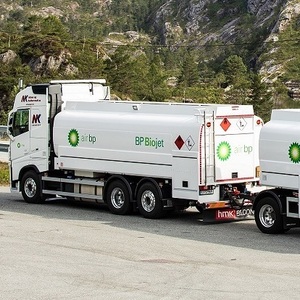Air bp agrees its first sale of SAF at Munich Airport

May 20, 2021
BY Air BP
Air bp, the international aviation fuel products and service supplier, has confirmed an agreement for its first sale of sustainable aviation fuel (SAF) at Munich Airport (MUC/EDDM). A business aviation operator will start to purchase SAF from the beginning of June. This marks the second location in Germany where Air bp has supplied SAF, the first being in December 2019 at Hamburg Finkenwerder Airport (XFW/EDHI).
This latest supply agreement follows Air bp’s recent SAF supply to three UK locations: London Biggin Hill, Airbus-owned Hawarden and Centreline FBO Bristol and one in France, at Clermont Ferrand. These agreements reinforce the importance of collaboration between fuel supplier, airport and customer in driving the demand for SAF needed if the industry is to meet its lower carbon goals.
The SAF supplied by Air bp is made from waste based sustainable feedstocks such as used cooking oil which is blended with traditional jet fuel. The SAF blend supplied is around 35% SAF and 65% traditional jet fuel. The SAF component provides a lifecycle carbon reduction of around 80% compared to the traditional jet fuel it replaces.
Advertisement
Andreea Moyes, sustainability director, Air bp, said: "We are delighted to see more SAF supply in Germany, an important aviation market for Air bp. We are working with all stakeholders to explore the viable sale and purchase of SAF, which we believe is one of the aviation industry’s key routes to decarbonizing the industry, and helping the world get to net zero.”
Jürgen Kuper, Air bp general manager for Central Europe and Benelux, added: “This latest supply reinforces our capability in the supply of SAF. We continue to work with airports and customers to identify other opportunities for SAF supply in the region and urge interested parties to come forward and contact Air bp.”
Air bp was involved in fuelling the first SAF flight by an airline in February 2008 and since then has been enabling ground-breaking test flights and investing in sustainable alternative fuels.
Air bp markets fuel at almost 40 airports in Germany.
Advertisement
Related Stories
The U.S. EPA on May 14 delivered two RFS rulemakings to the White House OMB, beginning the interagency review process. One rule focuses on RFS RVOs and the other focuses on a partial waiver of the 2024 cellulosic RVO.
The U.S. EPA on May 15 released data showing nearly 1.79 billion RINs were generated under the RFS in April, down from 2.09 million generated during the same month of last year. Total RIN generation for the first four months of 2025 was 7.12 billion.
Calumet Inc. on May 9 announced sustainable aviation fuel (SAF) capacity at its Montana Renewables biorefinery is expected to reach 120 MMgy to 150 MMgy sooner than previously reported for a fraction of the originally expected cost.
Tidewater Renewables on May 8 announced that its 3,000-barrel-per-day renewable diesel plant in Prince George, British Columbia, operated at 75% capacity during the first quarter, up from 71% during the same period of last year.
Aemetis Inc. released Q1 results on May 8, reporting increased biogas production, progress with efficiency improvements at the Keyes ethanol plant, and resumed biodiesel deliveries. Financing activities are also underway for a proposed SAF project.
Upcoming Events










